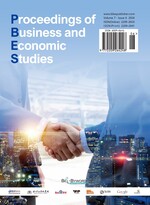Abstract
The purpose of this research is to explore the factors influencing the self-improvement process of museums in China and to conduct empirical analyses based on multiple linear regression models. As core institutions for inheriting and displaying cultural heritage and enhancing public cultural literacy, museums’ self-improvement is of great significance in promoting cultural development, optimizing the supply of public cultural services, and enhancing social influence. This paper constructs a multiple linear regression model for the influencing factors of museum self-improvement by integrating several key variables, including emerging cultural and museum business (EF), institutional reform (SR), research and innovation level (RIL), management level (ML), and the museum cultural and creative industry (MCCI). The study employs scientific methods such as literature review, data collection, and data analysis to thoroughly explore the internal logic of museum operations and development. Through multiple linear regression analyses, it quantifies the specific influence and relative importance of each factor on the level of museum self-improvement. The results indicate that the management level (ML) is the dominant factor among the variables studied, exerting the most significant influence on museum self-improvement. Based on these empirical findings, this paper provides an in-depth analysis of the specific factors affecting museum self-improvement in China, offering solid theoretical support and practical guidance for the sustainable development of museums.
References
Yang X, 2020, Discussion on Museum, Cultural Industry, and Museum Cultural Industry: Theoretical Framework and Development Suggestions. China Museum, 2020(4): 61–66.
Wei X, 2005, Leisure Time and Economic Growth: An Empirical Test of Chinese Data. Financial Research, 2005(10): 95–107.
Wei X, Sun D, 2008, A Review of the Theory of Leisure Economy and Its Latest Development. Journal of Tourism, 2008(4): 13–18.
Cui B, 2022, preliminary Study on the Provincial Plan for Promoting the Reform and Development of Museums. Museum, 2022(4): 50–55.
Zhao Y, 2015, A Study on the Reform of China’s Cultural Management System and Mechanism, dissertation, Shandong University.
State Administration of Cultural Heritage, 2021, Notice of the Commencement of Statistical Analysis of Cultural Property.
Yao L, Zhou Y, 2018, Management Competence, Innovation Level and Innovation Efficiency. Accounting Research, 2018(6): 70–77.
Chen M, 2004, Public Stadium Management Model. Journal of Physical Education, 2004(3): 25–28.
Wang F, 2015, An Analysis of the Ideas of Contemporary Museum Management. Leading Science Forum, 2015(20): 52–53.
Yang YM, 2021, The Application of Big Data in the Field of Cultural Creation. China Cultural Relics Daily, 2021-08-24(007).
Zhang E, Song X, 2014, A Preliminary Study on the Factors Influencing the Satisfaction of Museum Visitors. China Museum, 2014(3): 7.
Lee CW, 2021, A Study on the Evaluation and Influencing Mechanism of Museum Tourism Elements from the Perspective of Supply and Demand, dissertation, East China Normal University.
Wu S, Li Y, Chen K, et al., 2020, An Empirical Study on the Influencing Factors of Tourist Behavior Intention in Digital Museums. Travel Overview, 2020(10): 61–63.
Guo M, 2018, Perceived Values and Purchase Intention of Museum Cultural and Creative Products. Packaging Engineering, 39(16): 223–227.
Guo W, Zheng X, 2023, Research on Museum Audience’s Willingness to Use Multimedia Technology and Its Influencing Factors. Science Education and Museums, 9(2): 28–37.
